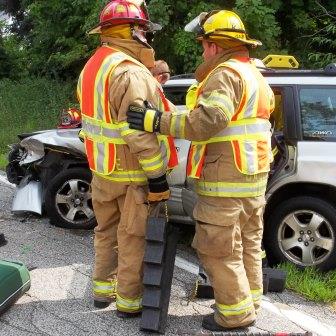
There is nothing worse than losing a loved one.
But to lose them in a fatal car accident brings heightened grief.
The death of a friend or family member seems entirely senseless.
When you think about what causes most car accidents the feeling of loss deepens.
Despite years of safety campaigns, TV and social media publicity and other efforts, are fatal car accidents down?
2018 closed out the year with more traffic fatalities in New Hampshire than the state had experienced since 2004. National Safety Council numbers show 146 traffic deaths in New Hampshire in 2018. That represents a 43 per cent increase over the previous year’s 102 traffic deaths.
According to NSC New Hampshire, of all 50 U.S. states, experienced “the largest year-over year percentage increase in highway fatalities” in numbers reported for 2018. By contract, nationally, the U.S. highway death rate overall actually declined one per cent. Overall, just over 40-thousand people die on U.S. highways every year based on accident data for the three previous years.
Massachusetts highways saw 357 fatal accidents in 2018. That preliminary number was actually down one percent from the previous year. So while New Hampshire fatal car accidents went up, Massachusetts saw a decrease.
Main Causes of Fatal Accidents?
No clear answer explains why the year brought as many fatalities as it did. At the same time, law enforcement identifies the major reasons for all highway accidents:
- Drug & Alcohol Use
- Failure to Yield
- Center-Line violations
- Speeding
- Distracted Driving
Only about one percent of the New Hampshire fatal accidents resulted from mechanical failure in a vehicle, and medical emergencies caused only 8 per cent.
Asked about impaired driving, one of New Hampshire’s top law enforcement officials pondered changing drug laws:
“All of our bordering states have legalized cannabis, and cannabis does impair [drivers]. … It goes back to personal choice and realizing there is an impairing factor to it.”
NH State Police Captain William Haynes, quoted in Hippo newspaper, Jan. 10, 2019.
At the same time, several years ago the New Hampshire legislature passed the so-called “hands-free” law. At first, heavy enforcement immediately followed passage of the then new law. The law banned the use of cell phones while driving unless using hands- free technology. The same law enforcement officer quoted above opines that “people have gotten smarter”, not holding the phones where visible, but looking down towards their laps.
Wrongful Death Lawsuits
After dealing with the immediate grief family members often turn to thoughts of receiving financial compensation for their loss. The usual personal injury claim does not address this scenario. Rather, a wrongful death claim addresses this.
Wrongful death lawsuits are brought by those left behind, usually a family member, when a person is killed by the negligence of another. In most states, including New Hampshire and Massachusetts, state laws spell out the requirements of the wrongful death cause of action. Two layers of legal proceedings underlie such cases. Only one with standing among those left behind must open a probate case. Then the person named executor, administrator, personal representative or other with authority over the case goes forward with the wrongful death claim.
The statutes spell out this right of legal action and the requirements. Fatal car accidents often underlie wrongful death lawsuits but other negligence can lead to such cases.
If you or a loved one has been hurt or worse in a car accident our office is here to help. With over 25 years of experience handling injury cases we bring an overview and can answer your questions and concerns. Feel free to contact us through this website or by phone for a no-cost consultation.
Sources:
Traffic Troubles, Hippo, January 10, 2019.
Vehicle Deaths Estimated at 40,000 for Third Straight Year, National Safety Council, April, 2019.
Views: 1




